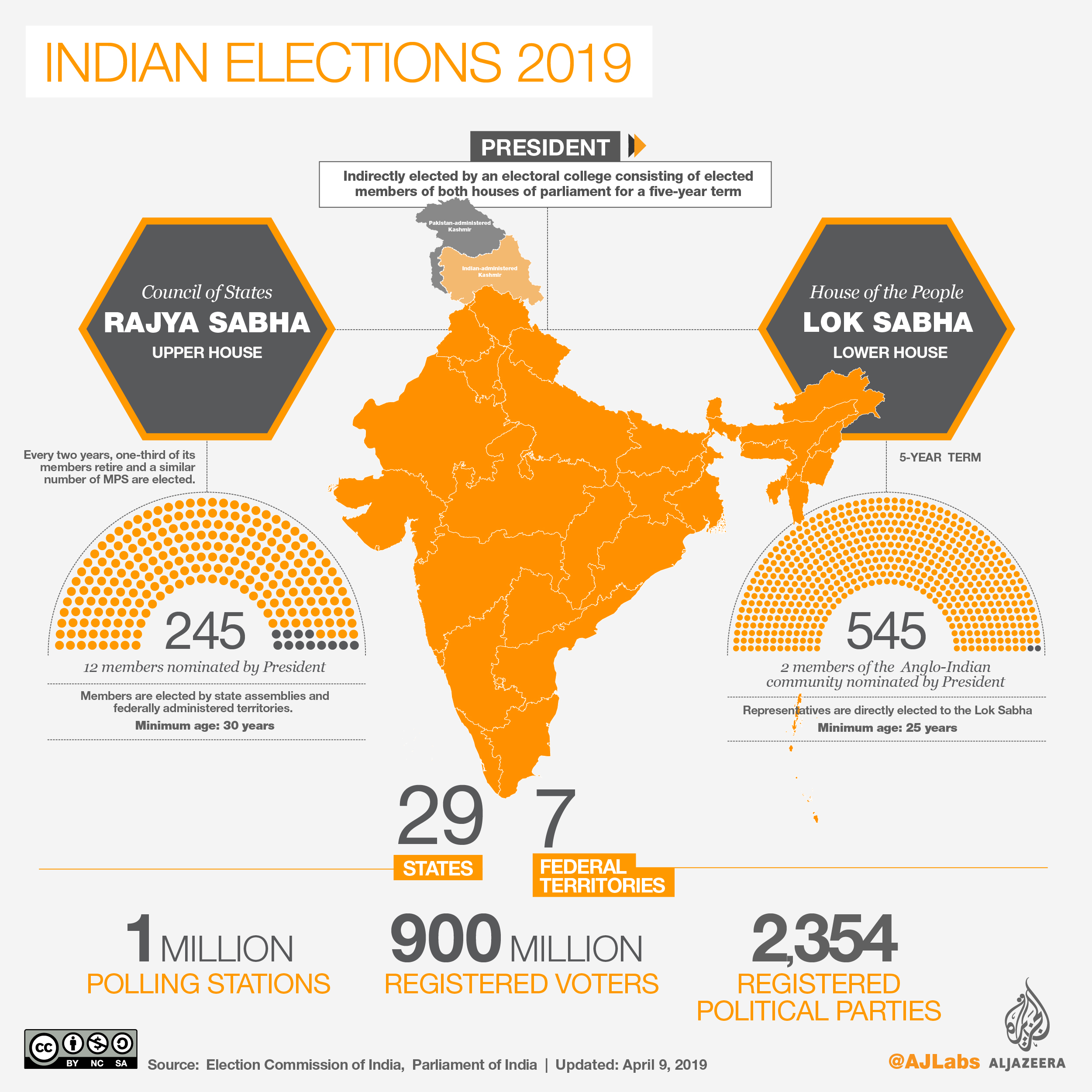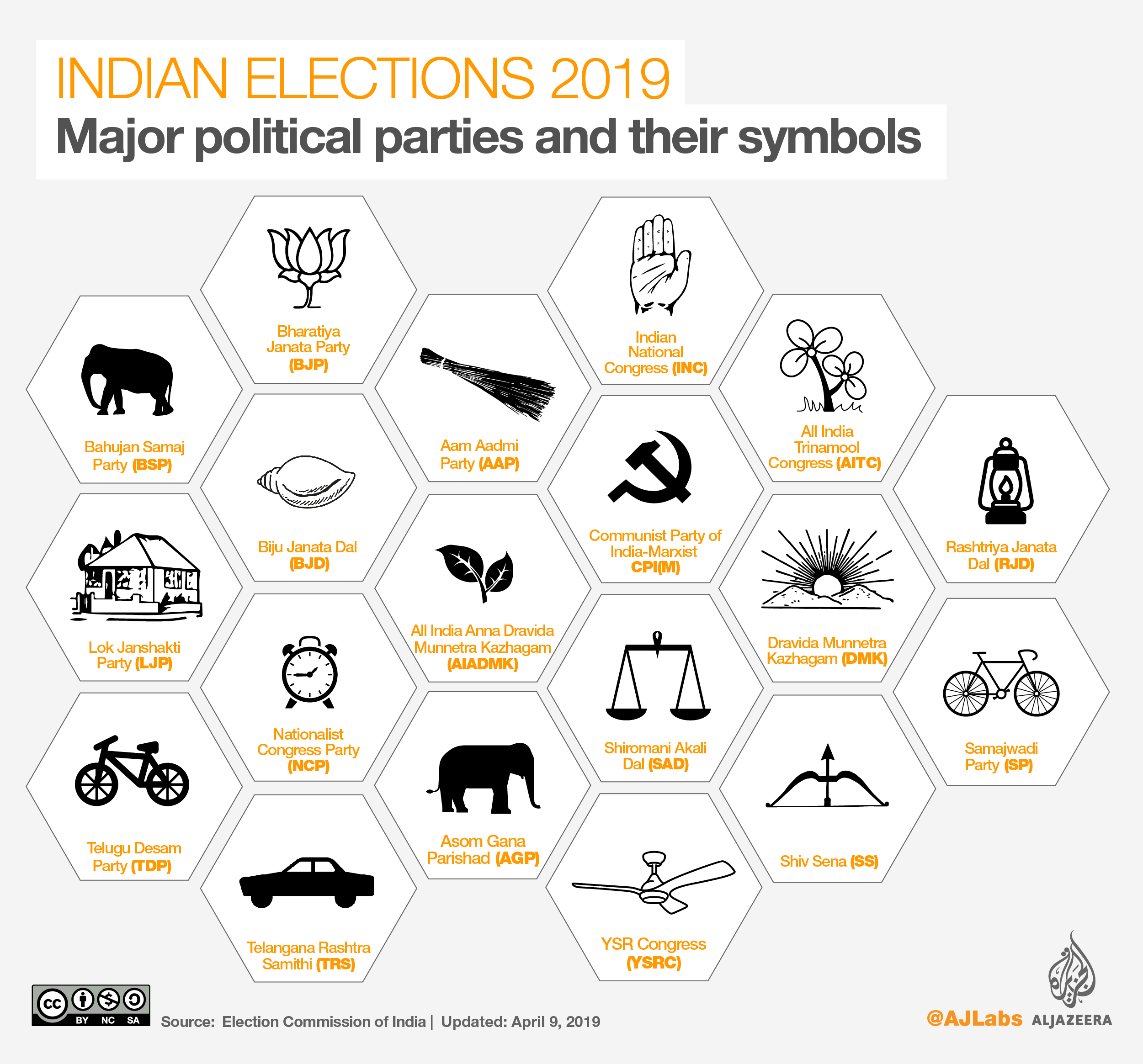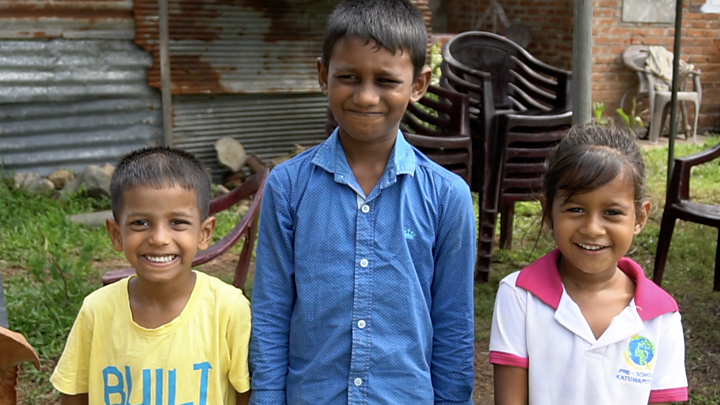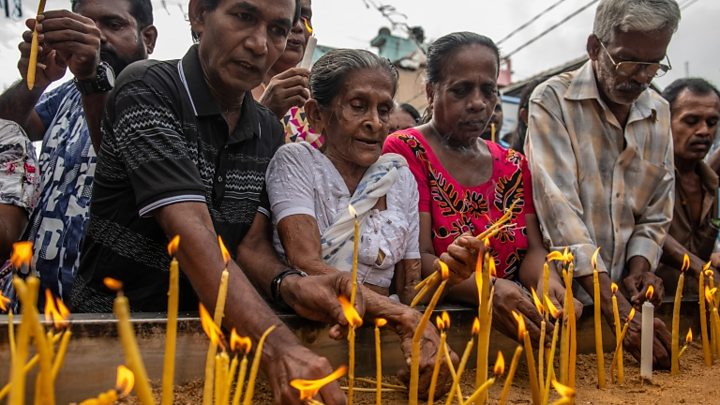Police broke up clashes between rival groups of voters in West Bengal on Monday as some of India's richest families and Bollywood stars also cast their ballots in Mumbai during the fourth phase of staggered general election.
More than 127 million people are eligible to vote in this round of the seven-phase election held across 71 seats in nine states.
In West Bengal, a populous eastern state crucial for Prime Minister Narendra Modi's re-election bid, supporters of his Hindu nationalist Bharatiya Janata Party (BJP) clashed with others from the regional Trinamool Congress, police said.
TV footage showed armed security forces chasing away people wielding sticks, although it was initially difficult to determine the scale of the clashes.
There were no immediate reports of any poll-related injuries in West Bengal, where at least one person was killed and three injured during the third phase of voting last week.
Many of the constituencies for Monday's election are in Uttar Pradesh state in the north and western India's Maharashtra, where the financial capital Mumbai is located.
Uttar Pradesh elects the most MPs, with Maharashtra next, and both states are ruled by the BJP. Prime Minister Modi's coalition won more than 75 percent of the seats in the previous election in 2014.
Bihar: 95 year old voter assisted by his relative to excercise right of franchise at #Bachwara in #Begusarai. #LokSabhaElections2019 #PollsWithAIR: K K Lal pic.twitter.com/rAkesWdezw
— All India Radio News (@airnewsalerts) April 29, 2019
However, political analysts say the BJP may struggle to repeat its strong showing this time due mainly to a jobs shortage and weak farm prices, issues upon which the main opposition Congress party has seized.
"Jobs should be the priority for the new government," said Aaditya Nair, a hotel management student, as he stood in line outside a polling station in Mumbai.
 |
First-time voter Ankita Bhavke, a college student in Mumbai, said she voted for economic development.
"I want the country to be at par with the best in the world," she said. "There's been some progress in the last five years." India's financial markets were closed on Monday for the election.
Mumbai, which has six seats, is India's wealthiest city but ageing and insufficient infrastructure is a major concern.
It is also home to the massive Hindi film industry, Bollywood, as well as Asia's richest man, Mukesh Ambani, and India's richest banker, Uday Kotak.
The seven-phase election, the world's biggest democratic exercise with about 900 million voters, started on April 11. The last phase of voting is on May 19, with results released four days later.
There are a total of 545 seats in parliament's lower house.
Modi has made national security as his main poll plank in the wake of tensions with neighbouring Pakistan over a deadly suicide attack in Indian-administered Kashmir.
Maidul Islam, a professor of political science at Kolkata's Centre for Studies in Social Sciences, said long queues outside polling stations would indicate whether Modi's national security pitch was working.
"Whenever there is a BJP kind of a wave, you see a higher voter turnout," he said.
 |
SOURCE: Reuters news agency
https://www.aljazeera.com/news/2019/04/india-polls-fourth-phase-general-election-190429031536053.html
2019-04-29 06:22:00Z
CBMiZWh0dHBzOi8vd3d3LmFsamF6ZWVyYS5jb20vbmV3cy8yMDE5LzA0L2luZGlhLXBvbGxzLWZvdXJ0aC1waGFzZS1nZW5lcmFsLWVsZWN0aW9uLTE5MDQyOTAzMTUzNjA1My5odG1s0gFpaHR0cHM6Ly93d3cuYWxqYXplZXJhLmNvbS9hbXAvbmV3cy8yMDE5LzA0L2luZGlhLXBvbGxzLWZvdXJ0aC1waGFzZS1nZW5lcmFsLWVsZWN0aW9uLTE5MDQyOTAzMTUzNjA1My5odG1s






